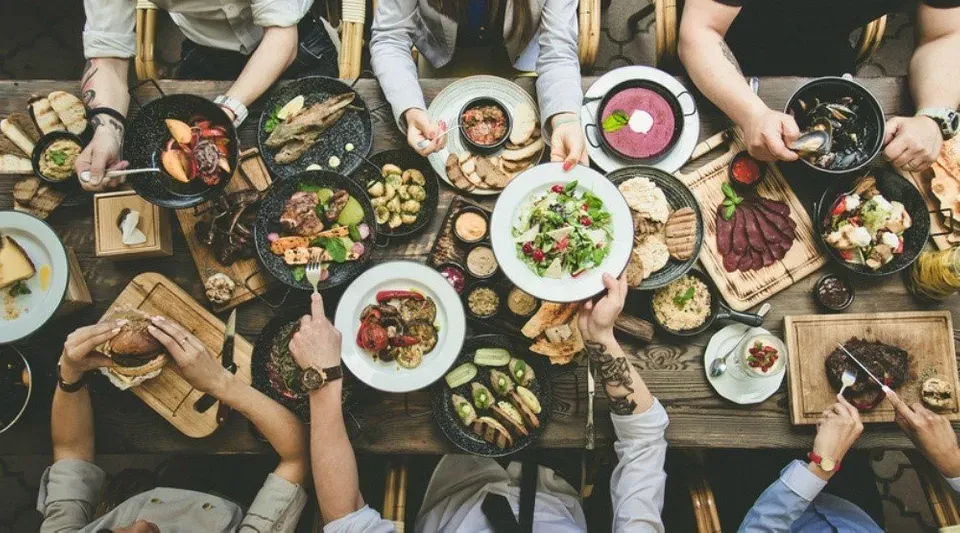1-877-HALAL-WW (+1-877-425-2599)
Best Practices for a Halal Conscious Muslim Consumer in a Non-Muslim Society
A Halal-Conscious Muslim Guide | Halal Diet Tips
During my undergraduate years, I worked across from a coffee house, and although I could have easily brought my own bagel along, I still craved one of their bagels.
The coffee house had a variety of freshly baked goods, much more than my neighborhood grocer's selection. One day, during my lunch break, I walked to the coffee house for my regular coffee, but before I ordered, I asked the barista if he would be so kind as to change his gloves and surface paper before handling my bagel. And if it was too much effort and an inconvenience on his behalf, I told myself I would settle for a delicious smoothie.
To my surprise, he smiled and admitted that it was a request that he gets often. He proceeded to change his gloves, the paper and started to process my order.
Ever since that day, whenever he sees me, he would remember my request and start putting on a new pair of gloves. And if I went to the coffee house and he wasn't there, I would ask whoever was there to do the same.
I've learned that once we (as consumers) get over the idea that making specific requests will be interpreted as 'rude,' we will come to realize that restaurants (whether they are Halal or not) simply aim to please and accommodate its customers (within reason) despite the inconveniences that may arise.
In a predominantly non-Muslim society, it's imperative for Muslims to be halal conscious consumers. Imagine for a moment that you were told that some restaurants pour urine in the oil, on the griddle, and the preparation table! Undoubtedly, you would not think twice about asking the owners at your next eat-out. We would all be very careful about eating in a place that handles their foods in such a disgusting way.
Well, it turns out that the reality for Muslim consumers is not much different. When non-halal chicken is fried in the same fryer as our fish, it contaminates the fish and the oil. Non-halal meats are najis (Filth), just like urine, excrement, and vomit are. If a halal beef patty is cooked on the same griddle as a non-halal patty, it cross-contaminates your pure Halal beef. When food is prepared on the same tables as other non-halal foods are, the Halal food is spoiled, and it becomes haram to consume.
The Prophet, Peace & Blessings Be Upon Him said: "A time will come upon the people wherein a man will not bother what he intakes; whether from a halal source or haram." (Bukhari 2059)
Sure, it may be intimidating to ask, but hopefully, when one considers the consequences of not asking, it should become second nature in less than no time.
Below are some of the questions that you can ask to ensure that you are eating proper Halal foods:
- Are you halal certified? (As opposed to just a claim that you sell halal products)
- Do you farm your own animals, or do you receive Halal meat from a third-party vendor?
- If your meat is obtained through a third-party, what methods have you taken to ensure that the meat you are selling as Halal is indeed Halal?
- Have you ensured that the animals are in good health at the time of slaughtering?
- Are the animals slaughtered according to the clear instructions of the Qur'an with complete avoidance of stunning the animal?
- Is the person performing the slaughtering a Muslim or from the ahlul Kitab (people of the Book)?
- Is non-Halal meat also sold and prepared in the facility, and how are they kept separated in order to avoid cross-contamination?
- What other products are sold in the store that may contain animal by-products?
- Is the food prepared in the same grill or pan as non-halal meat or alcohol? (If so, can my meal be prepared in a separate cleaned pan?)
Please keep in mind that the owner of the establishment may not be able to answer the questions listed above, as they may entirely have trust in their supplier and or certifier. In this case, an adequate response would be to reach out to their specific certifier with these questions prior to the consumption of the products distributed or served at that establishment.
Enjoy eating responsibly, without the need to change who you are, your values, or your beliefs. Don't change yourself; change the system!








